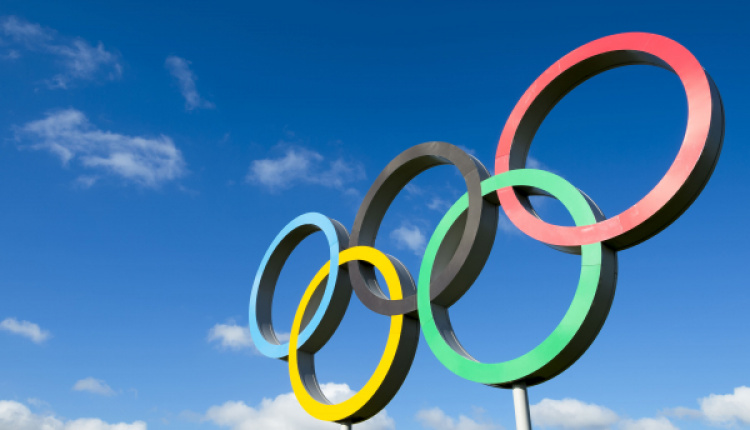Unforgettable Olympic Tales: Triumphs, Heroes & Resilience
- by XpatAthens
- Wednesday, 10 April 2024

The Olympic Games are not just about athletic prowess; they're also filled with remarkable stories, astonishing achievements, and unforgettable moments.
From groundbreaking milestones to incredible displays of resilience and determination, here are some of the most wow facts about the Olympic Games that will leave you in awe!
From groundbreaking milestones to incredible displays of resilience and determination, here are some of the most wow facts about the Olympic Games that will leave you in awe!
1. Kallipateira: The Trailblazing Woman
In ancient Greece, women were not allowed to compete or even attend the Olympic Games. However, one woman, Kallipateira, defied convention and made history. Disguising herself as a man, she entered the Olympic stadium to watch her son, Peisirrodos, compete in wrestling. When he won, she couldn't contain her joy and accidentally revealed her true identity. Rather than face punishment, Kallipateira was celebrated for her devotion and bravery, becoming the first woman to enter the Olympic Games.
2. Spyros Louis: The Marathon Marvel
In 1896, at the inaugural modern Olympic Games held in Athens, Greece, Spyros Louis captured the hearts of his nation and the admiration of trailing behind favored competitors from more established running nations. However, fueled by the cheers of his fellow Greeks lining the streets of Athens, Louis refused to succumb to the scorching heat and exhaustion. In a stunning turn of events, Louis surged ahead in the final leg of the race, overtaking his rivals and crossing the finish line at the Panathenaic Stadium to claim the gold medal. His unexpected triumph sparked jubilant celebrations throughout Greece, marking a symbolic victory for the host nation and forever etching his name into Olympic history.
3. Jesse Owens: Defying Adversity
At the 1936 Berlin Olympics, amidst the backdrop of Nazi Germany's propaganda of Aryan superiority, African-American athlete Jesse Owens delivered a stunning rebuke. Owens won four gold medals in track and field, disproving Hitler's ideology and cementing his place as one of the greatest athletes of all time. His triumphs transcended sports, sending a powerful message of courage, equality, and resilience in the face of adversity.
4. Abebe Bikila: Running Barefoot to Glory
In 1960, Ethiopian runner Abebe Bikila made history at the Rome Olympics by winning the marathon barefoot. Due to shoe discomfort, Bikila decided to run the race without shoes, a decision that astonished spectators and defied conventional wisdom. Not only did Bikila win the marathon, but he also set a new world record, becoming the first African to win Olympic gold and inspiring generations of athletes with his remarkable feat.
5. Derek Redmond: A Father's Love
In one of the most heartwarming moments in Olympic history, British sprinter Derek Redmond tore his hamstring during the 400-meter semifinal at the 1992 Barcelona Olympics. Determined to finish the race, Redmond refused to quit, hobbling along the track in excruciating pain. Suddenly, his father, Jim Redmond, broke through security and rushed to his son's side, supporting him as they crossed the finish line together. Their emotional embrace epitomized the bond of love, sacrifice, and resilience, inspiring millions around the world.
6. The Greek Goddess: Voula Patoulidou's Historic Hurdle
In the 1992 Barcelona Olympics, Greek hurdler Voula Patoulidou etched her name into Olympic history with a stunning upset victory in the women's 100-meter hurdles. Against formidable competition, including reigning champion Gail Devers of the United States, Patoulidou surged ahead in the final meters to claim gold, becoming the first Greek woman to win an Olympic track and field title. Her triumph sparked jubilant celebrations across Greece, inspiring a new generation of athletes and solidifying her status as a national hero.
In the 1992 Barcelona Olympics, Greek hurdler Voula Patoulidou etched her name into Olympic history with a stunning upset victory in the women's 100-meter hurdles. Against formidable competition, including reigning champion Gail Devers of the United States, Patoulidou surged ahead in the final meters to claim gold, becoming the first Greek woman to win an Olympic track and field title. Her triumph sparked jubilant celebrations across Greece, inspiring a new generation of athletes and solidifying her status as a national hero.
7. Eric Moussambani's Courageous Swim
In the 2000 Sydney Olympics, Equatorial Guinean swimmer Eric Moussambani captured the hearts of spectators with his valiant effort in the men's 100-meter freestyle. Hailing from a country with limited resources and without access to proper training facilities, Moussambani had learned to swim in a hotel pool only eight months before the Games. Despite his lack of experience and preparation, Moussambani found himself competing on the world's biggest stage. In a race that became known as the "Eric the Eel" heat, Moussambani swam alone after his competitors were disqualified for false starts. Though he struggled to complete the distance, Moussambani's courage and perseverance endeared him to audiences worldwide, embodying the Olympic ideal of participation, sportsmanship, and the pursuit of personal excellence.

